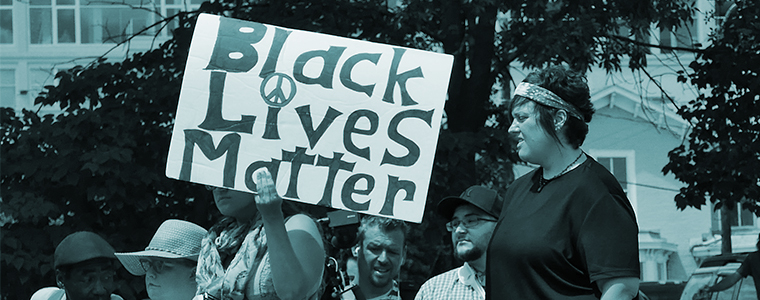Charlottesville Remarks
By Spencer Piston, Boston University
Thank you for the opportunity to participate in the BU Student Faculty Forum “Lessons from Charlottesville.” I was grateful to have the chance to learn from my faculty colleagues and the students in attendance.
I believe political scientists need to study the resurgence of biological racism and the ascendance of white supremacists in contemporary American life.
Let’s start with the academy. It is common—though by no means universal—for media coverage of scholarship in the natural sciences to ascribe differences in health outcomes across racial groups to genetic variation across those groups. Furthermore, some research suggests that this narrative is more common in news articles in recent years that it was previously.
Meanwhile, genetic explanations for public opinion and human behavior are increasingly common in political science. Partisanship, ideology, and voter turnout, for example, are increasingly argued to be a function of genetic inheritance. This line of research does not (yet) ascribe racial differences in individual-level political preferences and behavior to genetics. Prominent economics articles appearing in recent years, however, do attribute racial differences in meaningful outcomes to genetic causes. One recent article in the flagship journal of the American Economics Association, for example, argues that the continent of Africa is less economically developed than other continents in part because of the genetic characteristics of its inhabitants. Another argues that interethnic conflict and economic development is influenced by genetics.
Outside the academy, Steven Bannon, Sebastian Gorka, and Stephen Miller have all occupied elite political positions in the Trump administration, despite—or perhaps because of—their associations with white supremacist groups. Richard Spencer and Milo Yiannopoulos have also become prominent focal points for white supremacists (and their opponents). Charles Murray has been invited to college campuses across the nation, while prominent media outlets such as the New York Times cover white supremacists in a remarkably sympathetic fashion.
President Trump himself, meanwhile, has done little to disassociate himself from white supremacist ideas. At times he has even promoted these ideas—by retweeting white supremacist memes, for example. During Trump’s campaign, white supremacist websites attracted so much traffic that some of them crashed. After Trump was elected, hate crimes swept the nation. Some of the harassers explicitly referenced Trump’s victory during the commission of their hateful acts.
What led to and what followed the protests in Charlottesville reaches far beyond Charlottesville. To my knowledge, none of the people I have mentioned were actually in Charlottesville during the protests. Biologically racist and white supremacist ideas have gained legitimacy not in a single town but across the country: on college campuses, in news articles, in the presidential administration, and, I suspect, in the mass public. The resurgence of biological racism and the ascendance of white supremacists are developments that cross many domains of American life.
Photo Credit: Charlottesville VA 8/12/17 by Susan Melkisethian, taken on August 12, 2017. Licensed under CC BY-NC-ND 2.0.
